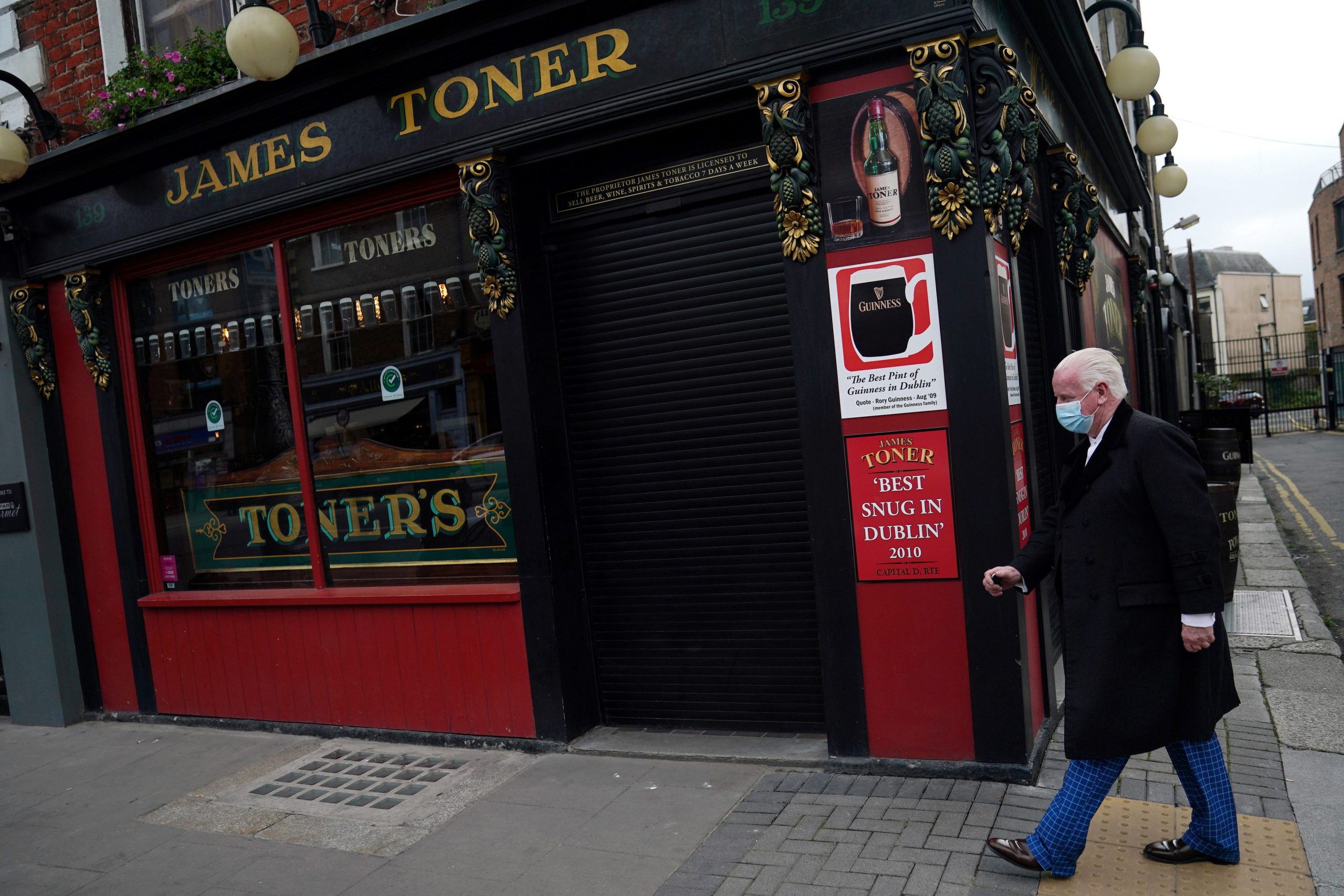
REUTERS/Clodagh Kilcoyne
- The Irish government said Monday night that the country would move into its highest level of lockdown restrictions at midnight on Wednesday.
- Non-essential retailers will shut and people will be asked to remain at home whenever possible.
- The government estimates about 150,000 people will lose their job in the coming days.
- “If we pull together over the next six weeks we will have the opportunity to celebrate Christmas in a meaningful way,” said Prime Minister Micheál Martin.
- Visit Business Insider’s homepage for more stories.
Ireland has warned that an estimated 150,000 people — around 3% of the entire population — will lose their job within days as the country moves to its highest level of coronavirus restrictions.
Starting Thursday, non-essential retailers will shut and people are asked to remain at home whenever possible, with a 5-kilometer (3.1-mile) travel limit for exercise. Social or family gatherings in homes or gardens will be banned.
Restaurants and bars can only provide takeaway service.
The lockdown, similar to the one imposed in March, will last six weeks.
Leo Varadkar, deputy premier, said in a press conference on Monday that the government estimates “about 150,000” will be laid off in the coming days.
He said it would cost around €200 million ($236 million) per week to support the economy through employment benefits and grants.
"So about €1.5 billion ($1.77 billion) for six weeks and that's not taking account, though, of the potential fall in [tax] revenue that may arise from business closures," Varadkar said.
Prime Minister Micheál Martin said in a televised speech that the country already has "what is probably Europe's strictest regime," but that current measures were not enough to suppress the virus.
"The government has decided that the evidence of a potentially grave situation arising in the weeks ahead is now too strong," he said.
"If we pull together over the next six weeks we will have the opportunity to celebrate Christmas in a meaningful way."
The "Level 5" restrictions will last until December 1.
Schools, childcare facilities and manufacturers can stay open.
The government said the restrictions would come into effect at midnight on Wednesday, later clarifying this meant late Wednesday night, early Thursday morning.
Infections have been on the rise in Ireland, with nearly 12,500 new coronavirus cases reported in the past two weeks. The death toll in the country stands at 1,852.
